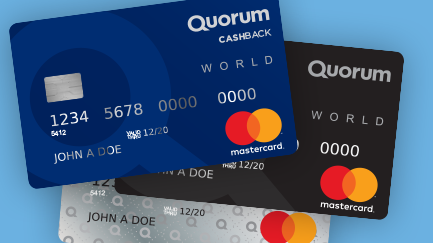Got debt? A credit card balance transfer is a way to switch credit card debt from one card to another that has more favorable rates and terms. The idea is to save money by taking advantage of a special offer so that you can pay down your debt faster and more affordably. Many credit card companies, for example, will offer a 0% introductory APR for a set period of time to entice new members.
Credit card balance transfers can provide a number of benefits as you work to pay off existing debt. If you have trouble keeping track of when your bills are due, you may also benefit from the convenience of one, single consolidated credit card bill. Before you jump on an offer, however, make sure you read the fine print, so you aren’t hit with fees or surprises.
Know the terms of your agreement.
First, understand that your debt isn’t actually paid off right away when you transfer your credit card balance from one card to another. You’re simply transferring it from one creditor to another with a more favorable interest rate. You’re still responsible for making payments on time each month for your new account. Otherwise, you risk accumulating late fees and potentially more interest.
Also understand that while you may be able to qualify for a great low rate for your initial balance transfer, this rate is only during your introductory period. Make sure you’re clear on how long this period lasts and what happens if a balance remains after that time. For instance, could you be retroactively charged interest on the remaining balance for the introductory period? (This is called deferred interest, and it can get quite expensive if you don’t have a plan to pay off your balance on time.)
Another important question to ask: Do new purchases on the card come with a different interest rate? If there is a different rate for transfers and purchases, understand how this could potentially complicate the repayment process. If there are two different APRs, it may be worth only using that particular card to pay off debt, rather than using it for new purchases. Otherwise, it may be worth choosing a card that offers the same APR for both transfers and purchases.
Be clear on all terms of the agreement before initiating a balance transfer, as there may be other actions that negate your promotional rate, such as a late payment.
Generally, as long as you pay off your debt within the introductory period, any added costs or fees will be kept to a minimum. Create your repayment schedule to see whether you can reasonably expect to pay off your debt within this timeframe. Also consider setting up automatic payments to ensure you always pay on time.
How to figure out the true cost of a credit card balance transfer.
Oftentimes, there is a cost associated with a balance transfer, even if your offer includes a 0% introductory period. Generally, you’ll pay a one-time fee of 3% to 5% of your transfer amount. If you transfer $10,000 of debt, for example, you’ll pay between $300 and $500. If you are lucky enough to find a no-fee transfer offer, just be sure to check for other potentially hidden costs, such as high late payment fees or an annual fee. (None of these are deal breakers, but you should factor them in when considering whether a balance transfer offer will actually save you money. As always, read your terms carefully to know what to expect and plan accordingly.)
Your credit score is your ticket to a great rate.
Transferring your credit card debt can provide a number of financial benefits. To qualify for the best introductory rates, you’ll generally need good to excellent credit. Most credit card companies allow you to check your rate with a prequalification form, so you can receive an offer without having a hard pull performed on your credit report.
Using a balance transfer to pay down debt can be an effective way of improving your credit score. But if you play the credit card game too much by continually transferring balances, you could end up hurting your score. Each time you apply for an account, an inquiry appears on your credit report for two years and causes a small dip in your score for one year. Too many inquiries and new accounts can add up and potentially serve as red flags to lenders.
Is a credit card balance transfer right for you?
A balance transfer can be an extremely effective tool for paying down debt. One of the most important parts of the decision process, however, is whether or not you have a solid payoff plan. Run the numbers to determine how much your payments will be in order to pay your debt down by the time the promotional rate ends. Can you comfortably afford those payments? How do the various fees affect your total savings? After the promotional period, is your new APR lower or higher than your current rate?
If you are approved for a balance transfer, the credit card issuer will walk you through the transfer, and ask you to provide the account you wish to pay off. (Be clear on how long it takes for the transfer to complete to avoid any late fees or interest on your old account.)
With a bit of number crunching and informed research, you’ll have all the information you need to decide which balance transfer offer is right for you.






Comments Section
Please note: Comments are not monitored for member servicing inquiries and will not be published. If you have a question or comment about a Quorum product or account, please visit quorumfcu.org to submit a query with our Member Service Team. Thank you.